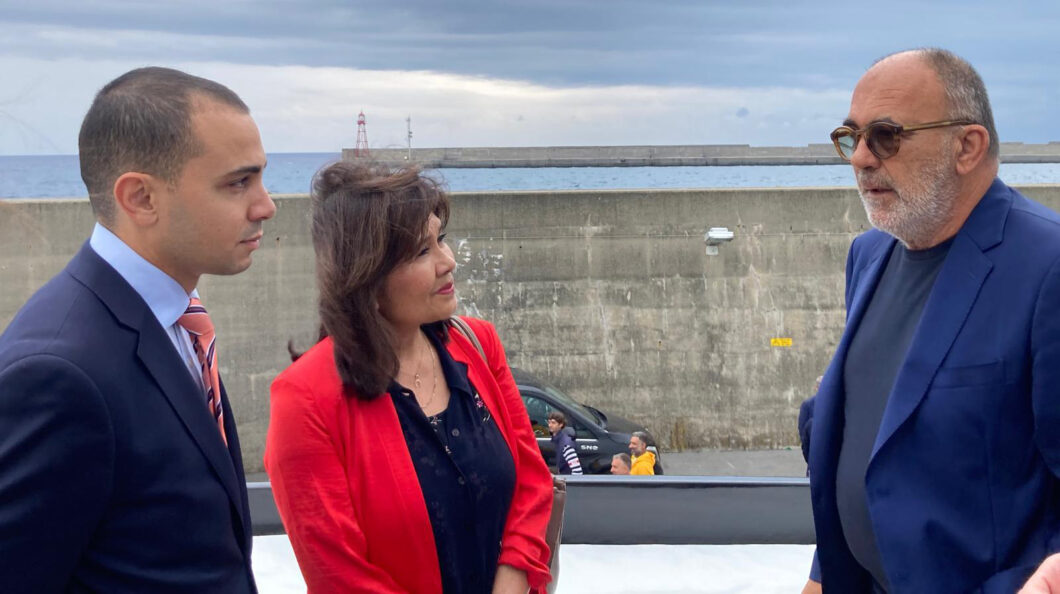Ladies and Gentlemen, distinguished guests,
It is an honor to be here today at the 64th Salone Nautico di Genova, celebrating Europe’s exceptional maritime heritage. As an MEP representing Malta, a Mediterranean island nation where the sea is not just part of our geography, but part of our identity, I feel a deep connection to the European boating industry.
For islands like Malta and Gozo, boats are not a luxury but a necessity. In fact, while we might dream of a world with fewer planes, we cannot dream of a world without boats.
Boats are the very lifeline of island economies like ours, and it underpins so much of our daily life—whether it’s for trade, fishing, or, as in Malta’s case, our critical tourism industry.
The European boating industry is truly a global leader.
If my figures are right, Europe produces approximately 66,000 new recreational boats annually, and the sector directly employs more than 280,000 people across the continent.
When you consider the entire value chain—from boat manufacturers to marinas, equipment suppliers, and service providers—that number rises to over 1 million jobs supported by the industry.
This is a significant contribution not only to our economies but also to coastal communities across Europe. In terms of economic impact, the European boating industry generates an annual turnover of more than €23 billion.
And its not just about the numbers.
The boats we build in Europe are made to last.
Unlike other industries, where products are designed for short lifespans, the average European boat lasts 30 to 40 years, a testament to the quality and craftsmanship of our manufacturers.
However, while we should celebrate these achievements, we must also acknowledge the challenges ahead.
The industry, like so many others, is at a crucial crossroads. The green transition is not just desirable—it is essential if we are to protect the very seas and environment that we all cherish.
The coasts we love must be safeguarded for future generations. This is something I take personally, as a young politician, someone who grew up surrounded by the Mediterranean’s beauty.
But let me be clear: the green transition should not come at the cost of our competitiveness.
This is where the European Union can play a pivotal role. We must act not simply as regulators but as enablers. Our job is not to over-regulate but to partner with industries in creating sustainable growth. The transition to cleaner ports and renewable energy in our marinas is a must, but it should come with practical support.
Take, for example, the shore-to-ship power initiative in Malta, which allows ships to switch off their engines and use renewable energy while docked, significantly reducing emissions in our ports. This is an EU-funded project that showcases how we can balance environmental responsibility with economic vitality.
This kind of best practice needs to be replicated across the continent.
So let’s recognize the challenge—yes, transitioning towards sustainability comes with costs. But if done right, it can open new opportunities.
EU boat manufacturers are already leaders in innovation. With the right incentives, they can lead in the green transition as well.
In doing so, we must also recognize the unique role that family-owned businesses play in this sector.
More than 90% of the European boating industry is composed of small and medium-sized enterprises (SMEs), many of them family-run.
These businesses are the backbone of Europe’s economy. They are also at the forefront of innovation, from developing electric propulsion systems to experimenting with sustainable materials for hulls and interiors.
But let’s not forget about the people behind the industry. The workers who build and maintain these boats are just as important as the technologies that power them.
As a social democrat, I believe in protecting workers’ rights as we transition to a greener future. A just transition ensures that no one is left behind, and the new European Commission must support this through funding and flexible policies.
In practical terms, we need clear, measurable goals. Mutual recognition of nautical licenses across the EU is one such achievable target that would simplify cross-border boating and reduce bureaucratic barriers for both boaters and industry professionals.
And we must ensure that sustainability goes hand-in-hand with affordability—so that everyone, from manufacturers to consumers, can participate in this green revolution.
That’s where the new European Commission must play its role—providing flexible frameworks that allow for a just transition, one that includes small and medium enterprises, workers, and consumers alike.
Finally, Environmental, Social, and Governance (ESG) principles should guide our way forward.
The maritime industry is a key player in Europe’s green agenda, but ESG is not just about environmental impact. It’s about ensuring that the entire ecosystem—from boat builders to marina operators—thrives, while preserving the seas for future generations.
My vision for the future of boating is this: a sector that honors its traditions while embracing the innovations necessary for a cleaner, more sustainable world.
With the EU as a partner, I am confident we can achieve this, ensuring that Europe remains at the forefront of the global boating industry while safeguarding our shared natural heritage.

